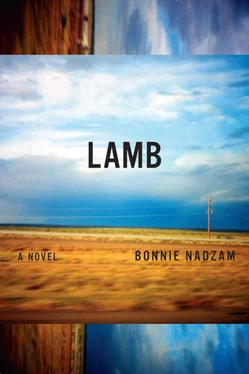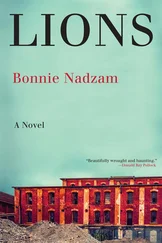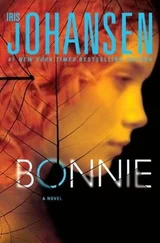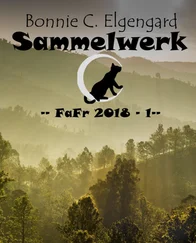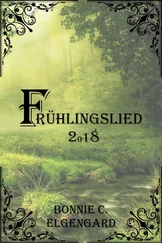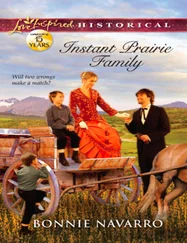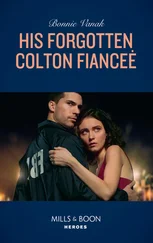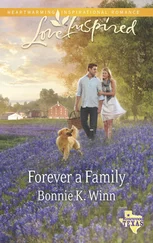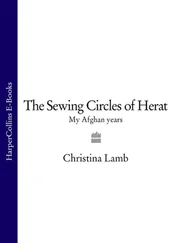Bonnie Nadzam - Lamb
Здесь есть возможность читать онлайн «Bonnie Nadzam - Lamb» весь текст электронной книги совершенно бесплатно (целиком полную версию без сокращений). В некоторых случаях можно слушать аудио, скачать через торрент в формате fb2 и присутствует краткое содержание. Город: New York, Год выпуска: 2011, ISBN: 2011, Издательство: Other Press, Жанр: Современная проза, на английском языке. Описание произведения, (предисловие) а так же отзывы посетителей доступны на портале библиотеки ЛибКат.
- Название:Lamb
- Автор:
- Издательство:Other Press
- Жанр:
- Год:2011
- Город:New York
- ISBN:978-1-59051-438-2
- Рейтинг книги:5 / 5. Голосов: 1
-
Избранное:Добавить в избранное
- Отзывы:
-
Ваша оценка:
- 100
- 1
- 2
- 3
- 4
- 5
Lamb: краткое содержание, описание и аннотация
Предлагаем к чтению аннотацию, описание, краткое содержание или предисловие (зависит от того, что написал сам автор книги «Lamb»). Если вы не нашли необходимую информацию о книге — напишите в комментариях, мы постараемся отыскать её.
Lamb — читать онлайн бесплатно полную книгу (весь текст) целиком
Ниже представлен текст книги, разбитый по страницам. Система сохранения места последней прочитанной страницы, позволяет с удобством читать онлайн бесплатно книгу «Lamb», без необходимости каждый раз заново искать на чём Вы остановились. Поставьте закладку, и сможете в любой момент перейти на страницу, на которой закончили чтение.
Интервал:
Закладка:
“I won’t get married.”
“Won’t you work for the forest service when you’re out of college? And tell me how to find you so I can come visit you in your tent? I’ll be that old camper who’s always haunting the high plains, right? I’ll wear an orange cap so you’ll know me. Even from far away.” He bent over and kissed the crown of her head. “I want you to always remember that I never let you eat a meal out here that was something we added hot water to.”
“Like oatmeal, puke.”
“Or dehydrated vegetables. I want you to remember all the meals we made together, and how every one of them had whole beans it. What’s happening underneath that toast?”
She tipped her head sideways and checked the smoke, checked the flames, and looked up at him.
“Go ahead. Let me see you fix that.”
With a white branch she rearranged the logs to keep the natural windbreak from burning it up too quickly, then turned to the little pile of sticks and tree punk and pine needles and twigs and pushed a handful in beneath the lowermost level of burning wood.
“If you’re ever alone in the woods waiting for me,” he said, “you’d be okay. Wouldn’t you?”
“Yep.”
“You’d know how to make it through the night.”
“Yep.”
She placed the white branch behind her in the cold grass.
“You’ve learned a thing or two about being an outdoorswoman.”
“I know.”
After eating and rinsing the pans, Lamb would drink his second cup of coffee and they’d walk up the hill across the spans of sagebrush and sumac and along a deep empty draw. Rust-bitten iron and steel lay in broken pieces in the weeds—comb of a hay rake, the axle and wheels of a mowing machine. They’d pass it on their way to the same grassy promontory each morning from where Lamb would point to the distant foothills, the innermost point, he told her, of a spiral of mountain and rock, like a granite wall corkscrewed around the little mountain lair she’d inherit—he promised—when he died.
If we were going to stay out here, he told her, we’d set up this little coal-burning stove, polish it till it turned black again, and we’d bring a little life back to this place. Then we’d build a new stable of blond wood, and I’d buy you a string of ponies. You could learn all the old ways. Boiling pudding in a bag. Decorating caraway seed cakes with burnt sugar. Trapping and roasting prairie chickens. We’d get some hired help, nice young guys from Idaho or Oregon who could put up a new rail fence around front and keep all the fences mended.
We’d bring it all back. You’d pack us lunches in metal lard buckets we’d hang from our saddles, and you’d sneak the best things into my pail, wouldn’t you? A thick layer of butter on my ham sandwich. By day you’d boil my shirts and hang them to dry outside. And when we got back at the end of the day and scrubbed our faces and hands with gritty soap, we’d line up at our long wooden kitchen table, you at the head in a flowered dress, passing down all the warm dishes of food. When it’s all set out upon the table, we’ll all bow our heads, and I’ll say the blessing, right? In the winter when it’s just you and me by the fire, we’ll commit whole chapters of the Bible to memory, so I’ll really be prepared. And do you know who will be the first person I pray for? Your mother.
And Christ he wanted to freeze her in time on the mountain, her tangled hair the color of pale tree bark, her burnt skin peeling off her face in bluish flakes, and he’d lie down with her there in the magnificently bright light, beside her on the bittercress and weeds, the old rusted hay rake beside them, angry red-winged blackbirds wheeling in great dark hoops above them.
We’re all alone out here, he would say. Is the sky bright, or what? Listen to those mad birds. We’re reinventing the world, my dear. Here. Yes. Like that. Are you comfortable? Isn’t this nice? Do you know how lucky we are to have this?
He stared at her little heart-shaped face and kissed her cheek and kissed her mouth and a thrilling horror spread like a stain through the hollow of his chest.
“We can’t help it, can we?” he whispered hoarsely. He opened his hand over her heart and held her there. “This was too big for us. It was too big for us it swallowed us up didn’t it?”
Shrug.
“Oh, you sweet child. Do that again.”
Shrug. She shut her eyes.
“Just hold my hand, okay? And we’ll sleep. Just as we are, just like this. Just a nap out in the wind and light. Yes. We’re not taking this any farther. Just this. Thank you.”
In a little while, he lifted her up out of the grass and carried her down the hill and back inside and tucked her into bed beside him.
• • • • •The woodstove snapped and hissed and a thin wind sang again across the chimney pipe, racing high, chasing nothing. Tommie lay her head sideways upon David Lamb’s chest, her knees pressed against either side of his ribs, her ear against his heart, like a wet little chorus frog pressed against him for heat, and she asked him what he was like when he was a boy, when he was little, and then her age, and he told her to shush, to close her eyes.
Imagine a whole canvas of pale greens waving and strung with bees and all about you the music of swallows and sparrows and shrikes. And there in the middle of it is our Lamb, a boy, big eyed with ironed Levi’s and clean short hair and he’s the only one of all four boys his mother kissed before he left the house in the morning. In his pocket, two dimes she gave him and only him and he’ll add them to his pile of dimes and steal the black taffy and Long Boys and Atomic FireBalls from Bonn Drugg’s and share them magnanimously with all the fellows. For now he is walking through this grass, skimming his open palms across their feathered and green-needled tops wondering what he will buy when he has a hundred dollars. And the answer is absolutely whatever he wants. What a joy to be alive in the world as the tallest boy with the broadest shoulders and a pile of dimes in your closet and as many candy bars as you can stuff in your pockets day after day after day.
Somewhere behind him the boys are laughing, a dozen of them making a baseball diamond in the cinders on the street. A cork ball. A single wooden bat. He could play but then no one else would have a chance to make the best hit or the best catch or pitch and he is tearing up the Queen Anne’s lace because it looks like his mother’s stupid doilies she’s always needling with alone up in her room with the door shut. He tears them up, every single lacy white flower with his fists as he walks, and he throws them all shredded across the top of the stupid fucking grass because the last thing the world needs is another doily.
The sound of a train lumbers and clanks over the metal tracks on the far side of the meadow. In his back pocket he carries a torn page from a Superman comic that wasn’t his, but should have been his, and a pocketknife of his father’s that he’s not supposed to touch, that he’d been belt-whipped once already for touching when he carved his name in the cedar mantelpiece. In the torn-out picture, Superman is diving and swooping over a train and all the women in the windows are looking up at him, the men just go on reading their newspapers—they don’t even know what’s happening—and the train is called TRIUMPH in golden letters and Superman can fly above it in figure eights and lift the whole thing off the tracks and over his head, which he doesn’t do in the picture David stole, but which David Lamb knows he could do. Knows it.
Mornings before Mom’s car wreck, Glenn comes over from next door knocking on the back door in the morning and singing out Ole Davy! Ole Davy! Lamb’s father curses and Glenn tells him good morning Mr. Lamb and Davy’s not allowed out till he’s finished his breakfast. Within ten minutes there is a chorus of boys outside the back door calling out with Glenn, everybody calling his name, everybody waiting for Davy in order to start the day, and his mother ushers him outside and tells him go save the day, Davy—a little song she sings every summer morning. And she gives him one of her paper-wrapped raisin biscuits she keeps just for herself in a tin above the stove and kisses the crown of his shining head. Neither Henry nor Mark leaves the table because there’s no one out there who even wants to see either of them. Nobody ever wants to see any of them except Davy.
Читать дальшеИнтервал:
Закладка:
Похожие книги на «Lamb»
Представляем Вашему вниманию похожие книги на «Lamb» списком для выбора. Мы отобрали схожую по названию и смыслу литературу в надежде предоставить читателям больше вариантов отыскать новые, интересные, ещё непрочитанные произведения.
Обсуждение, отзывы о книге «Lamb» и просто собственные мнения читателей. Оставьте ваши комментарии, напишите, что Вы думаете о произведении, его смысле или главных героях. Укажите что конкретно понравилось, а что нет, и почему Вы так считаете.
